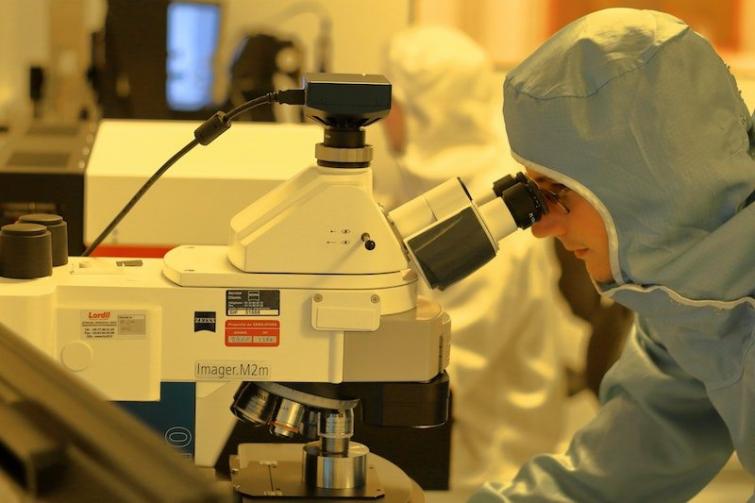
Moderna's COVID-19 vaccine worked well in monkeys: Study
Giving humanity yet another hope that a solution will be reached soon, US Biotech major Moderna said its COVID-19 vaccine induced a robust immune response and prevented the coronavirus from replicating in the noses and lungs of monkeys.
The study was published in The New England Journal of Medicine.
"The study showed a two-dose vaccination schedule of mRNA-1273 led to a robust immune response and protection against SARS-CoV-2 infection in the upper and lower airways in non-human primates, without evidence of vaccine-associated enhanced respiratory disease (VAERD)," Moderna said in a press statement.
In the study, immunogenicity and protective efficacy were assessed after a two-dose vaccination schedule of 10 or 100 µg doses of mRNA-1273 or control given four weeks apart (n=24; 8 per group).
Four weeks after the second vaccination, animals were challenged with high doses of SARS-CoV-2 through intranasal and intratracheal routes.
After two vaccinations, the immune response observed in this non-human primate study was consistent with the recently reported Phase 1 human study of mRNA-1273, also published in
The New England Journal of Medicine. At the 10 µg dose, the geometric mean titer (GMT, ID50) measured in a pseudovirus (PsV) neutralization assay was 103, similar to the GMT for a panel of convalescent sera reported previously (109), and below the GMT achieved by mRNA-1273 in the Phase 1 human study at the 100 µg dose (231) in the same PsV assay.
At the higher dose in the non-human primates (100 µg) neutralizing antibody titers increased further, with PsV GMT reaching 1,862. Vaccination also led to a significant increase in T cell responses, primarily Th1 CD4 T cells.
Two doses of mRNA-1273 provided protection against lung inflammation following viral challenge with SARS-CoV-2 in non-human primates at both the 10 µg and 100 µg dose levels.
In addition, both the 10 µg and 100 µg dose groups demonstrated protection against viral replication in the lungs, with the 100 µg dose also protecting against viral replication in the nose of the animals.
Of note, none of the eight animals in the 100 µg group showed detectable viral replication in the nose compared to six out of eight in the placebo group on day 2.
“This important preclinical study shows that mRNA-1273 protected against a high dose SARS-CoV-2 infection in non-human primates and prevented pulmonary disease in all animals, further supporting the clinical advancement of mRNA-1273,” said Stephen Hoge, M.D., President at Moderna.
“We believe this is the first demonstration of control of viral replication within two days of challenge in both the nose and lungs in non-human primates by a vaccine against COVID-19," Hoge said.
"Given the similarity between the protective immune response generated by mRNA-1273 in this study and the immune response seen in humans in the recently published Phase 1 clinical data for the vaccine, we remain cautiously optimistic that mRNA-1273 will be able to prevent COVID-19 disease and may also slow the spread of SARS-CoV-2 by shortening the duration of shedding," Hoge said.
Support Our Journalism
We cannot do without you.. your contribution supports unbiased journalism
IBNS is not driven by any ism- not wokeism, not racism, not skewed secularism, not hyper right-wing or left liberal ideals, nor by any hardline religious beliefs or hyper nationalism. We want to serve you good old objective news, as they are. We do not judge or preach. We let people decide for themselves. We only try to present factual and well-sourced news.







